Metzgerstrasse 16 (the house has been torn down)
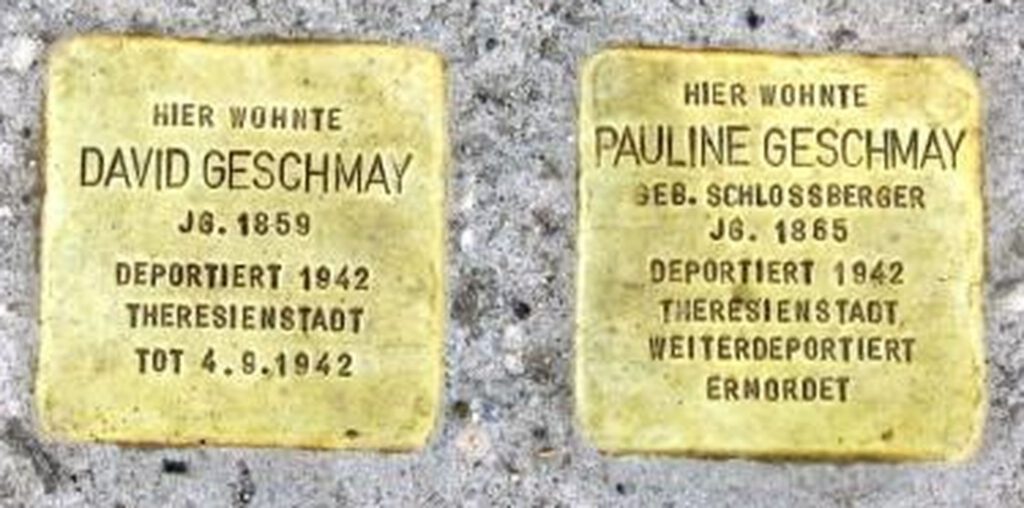
Both were of Strong and Fighting Spirit
On December 25, 1859, David Geschmay was born in the Bohemian town of Ronsperg (today Pobezovice / Czech Republic), the eighth of ten children of Karoline and Salomon Geschmay. Jews had lived in the city for centuries. Intra-Jewish religious conflicts had taken place there, and the founder of Hasidism, Bal Shem Tov, had stayed in Ronsperg several times. David Geschmay’s parents left their Bohemian homeland and settled in Windsheim, where Salomon was granted citizenship on August 30, 1888.
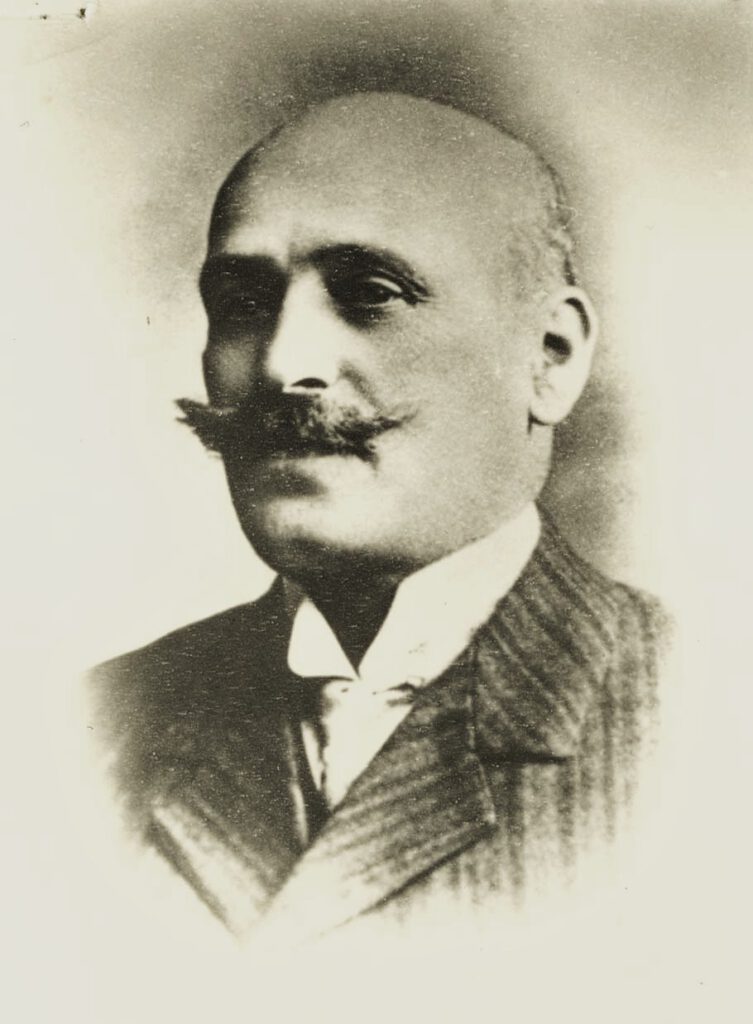
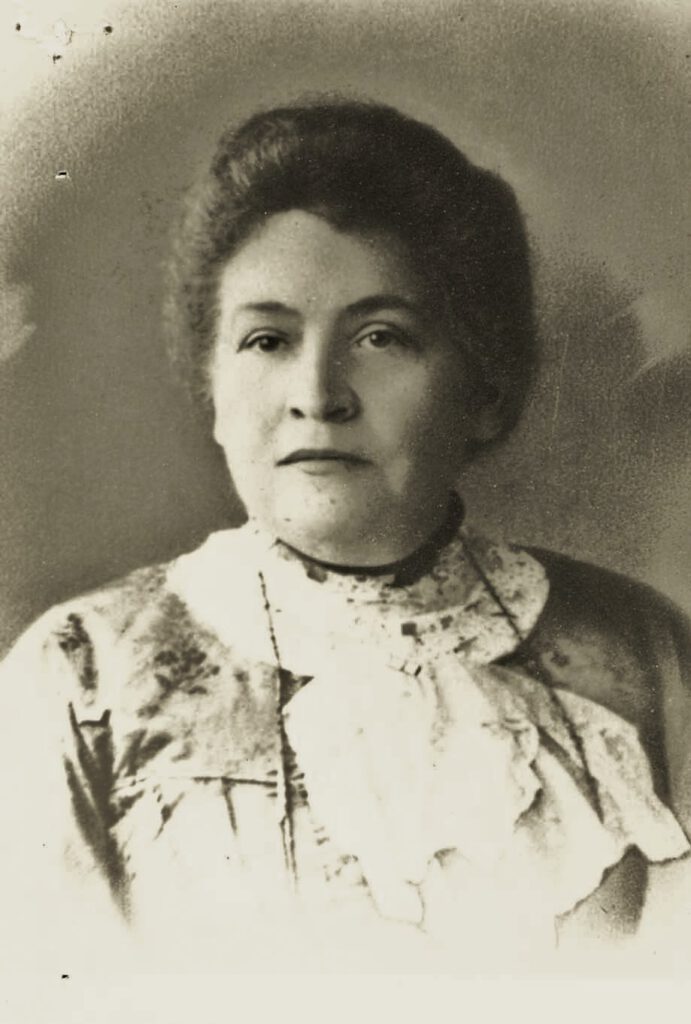
Six years after David’s birth, on March 25, 1865, Pauline Schlossberger was born in Hollenbach near Kuenzelsau, her parents were Halma, née Strauss, and Moses Baruch Schlossberger. Pauline also came from a large family, she had five older and one younger sibling. Nothing has been handed down about the childhood and youth of Pauline and David Geschmay. While living in Windsheim, David Geschmay was already an innovative entrepreneur, in 1892 selling high-wheel bicycles manufactured in England. Anna Laura Geschmay Mevorach writes about her grandparents who were married in 1888 in Mergentheim: “In the opinion of my grandfather David, my grandmother Pauline Schlossberger was the most beautiful woman he had ever met. Both had such a strong and fighting spirit that they could break a chair leg in the heat of an argument.” Pauline and David’s first daughter Milly was born in Windsheim, Erna followed a year later, then Irma was born in 1893, and in 1900 a son, Hans Walter.
While living in Windsheim, David Geschmay dealt in textile goods, and in February1884 he opened his own store, selling ‘cloth, ready-to-be-cut materials, and fashion goods.’ But he was also interested in modern user technology, and during the 1890’s he also dealt in sewing machines and bicycles, as mentioned above. Besides all the activities connected with his business, David Geschmay also served for 15 years as a volunteer fireman in Windsheim and as a trainer in a gymnastics club.
The ‘Wuerttemberg Felt Cloth Factory’
In 1910, the family moved to Goeppingen, where David Geschmay purchased a felt cloth factory that had been founded there in 1860. David Geschmay, and later his son Hans, restructured the original factory which had been based on individual craftsmanship.
The new company became a modernized industrial factory under the name of ‘Wuerttemberg Felt Cloth Factory D.Geschmay o.H.G.’
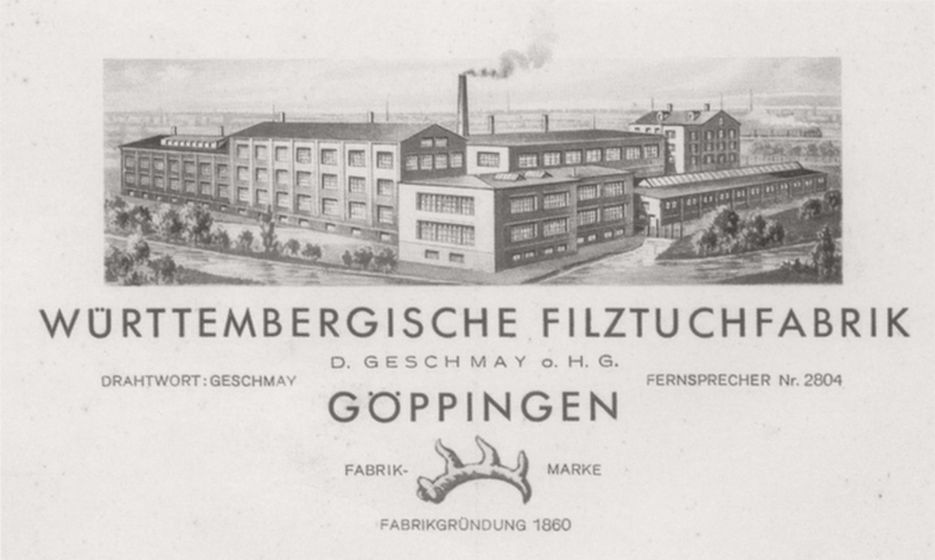
It was located in the Metzgerstrasse, where the Geschmays also lived. Industrial felt was a much-sought-after material needed for paper production, and the Geschmays became successful business people and highly-regarded citizens of Goeppingen. In 1927 Dr. Taenzer wrote in his book about the Jewish citizens living in Jebenhausen and Goeppingen: “The company was considerably enlarged during the past few years and now has its own turbine-driven power plant, facilities for washing wool, spinning and weaving mills and a finishing facility, with some of the looms being 12 meters wide.” At that time, David’s son Hans Geschmay, as well as Leo Neuburger, the husband of his daughter Irma, were already partners in the company. Dr. Anna Laura Geschmay, David’s granddaughter, attested to his dedication when it came to his work: “One of my childhood memories, or something that might have been told to me, is that one day ice blocked the turbines that carried electricity to the factory. My grandfather made his way onto the ice until he reached the turbine, bravely putting himself into danger and ripping the ice off with his hands until the turbine worked again. I don’t know in which year this took place, but it literally testifies to the courage of my grandfather. Work was sacred to him, and nothing could stop it“.
Dr. Geschmay also remembers the personality of her grandmother: “Oma Pauline was a woman of strong character, and she wanted to have her granddaughter, little Hannelore (Anna Laura), grow up with a sense of self-discipline and self-control. Almost every afternoon she would come up the hill leading to our house to visit and bring some sweets with her. One day she gave me a little cardboard suitcase with strict instructions not to open it without her permission. Later I realized that this served to teach me self-control.”
Their granddaughter describes her grandparents’ religious beliefs: “It should be noted that at our house the Jewish ‘Easter’ (Pessach) was not observed at all. However, this does not mean that maybe my grandparents did not observe it in some way. I heard that there was talk of a lot of dinnerware being used during Easter: there were two sets of dishes.”
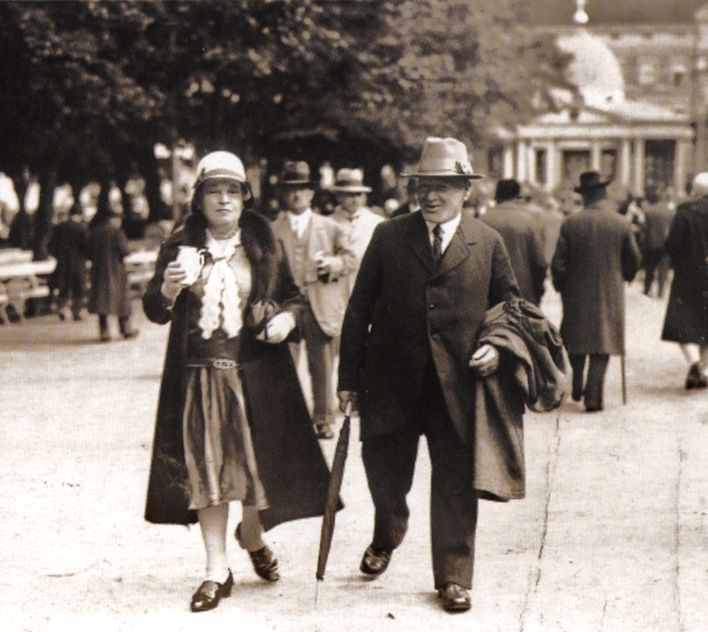
The ‘Neuburger Affair’ – Lynching Justice in Goeppingen
During the first months of Nazi rule, one of the family members, son-in-law Leo Neuburger, already found out what it meant to be a Jewish person in the Nazi state. David Block, a Jewish refugee from Goeppingen, described intimidation perpetrated on Leo on July 6, 1933, in a letter written to Georg Weber in 1966:
“You probably have heard how Mr. Neuburger, the son-in-law of felt-cloth factory owner Mr. Geschmay, was dragged from his house by a jeering crowd lead by Oesterreicher [notation – Ortsgruppenleiter Wilhelm Oesterreicher – kmr]. This was done under the pretense that he had a relationship with a woman working in the factory, which would have violated ‘racial purity standards’, etc. Oesterreicher strung a long rope around Mr. Neuburger’s neck, knotted it and dragged him through the streets of Goeppingen, accompanied by a raging mob. Mr. Neuburger was made to wear a placard on his front and back reading ‘I am a Jew and a defiler of racial purity.’ He had to stop and repeat this statement under each street lantern, and if he did not do it, Oesterreicher would kick him in the back with his big boots until the poor man fell down. Then Oesterreicher would pull him up again by the rope. This went on until they reached police headquarters, where police took him into protective custody. But Oesterreicher pulled Mr. Neuburger back with the rope so hard that he nearly choked to death. Police commissioner Wolf, whom I knew personally, took out a knife and cut off the rope. Neuburger was sent to Dachau and later died.”
Even the Göppingen newspaper wrote on the 7th of July, 1933. about the abuse, but let it seem as if the police protected Neuburger from the mob. The central part that Oesterreicher had played was not mentioned at all. The whole situation was justified with the opening sentence: “Deutsche Volksgenossen, seid wach!” (German People, be Aware). “Name the `honorable´ Jewish men with their non-Jewish women by name, those who still dare to disgrace the German race. On the pillories with them! The generations to come will be grateful.”
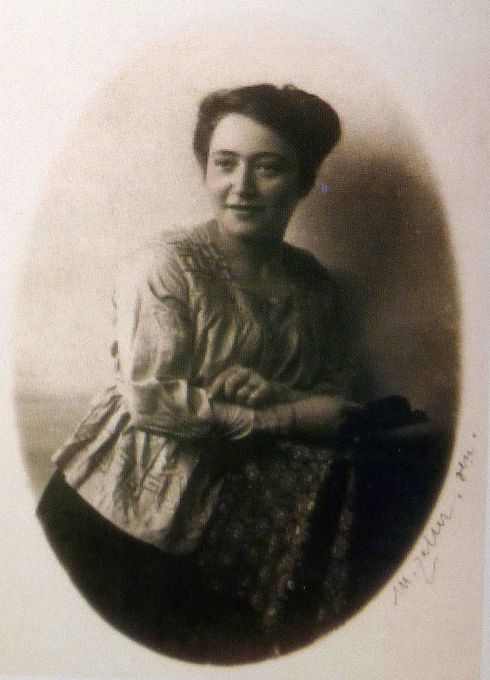
It might have been true that Leo Neuburger had an extramarital relationship – nothing unusual. But only because the Nazis classified him as `Jewish´, was he humiliated like this. Mr. Block however remembered incorrectly, Leo Neuburger, who moved to Stuttgart in 1935, later fled to Montevideo / Uruguay where he died in 1965. His wife, Irma Neuburger, née Geschmay, who remained childless, had already died in July 1934 in the Karl Olga Hospital in Stuttgart. She was buried in the Stuttgart Prague Cemetery, the grave with the number 2918 commemorates her. She was buried at Stuttgarter Pragfriedhof, the Graveyard with plate number 2918 reminds her. After her death Leo Neuburger left the Geschmay company. As a shareholder his share was paid out to him.
‘Euthanasia’ – Murder of Daughter Milly Rosenwald
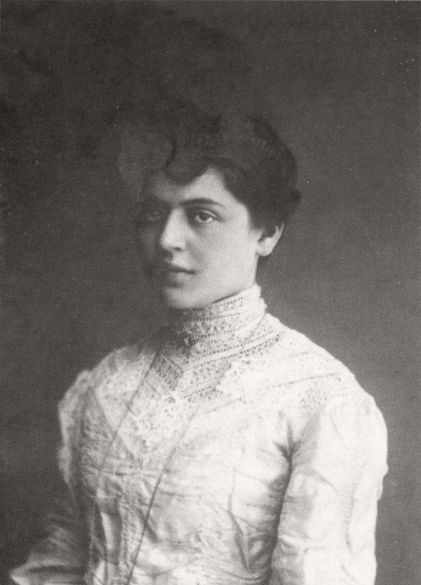
The first murder victim in the family was the oldest Geschmay–daughter Milly, who had married Justin Rosenwald in 1913. The couple lived in Nuernberg. Since 1912 Justin Rosenwald had been one of the two partners in the `Nuernberg Stuffed Toy Goods Factory´. In May 1914 their child Bruno was born. Toward the end of the 1920’s Milly became mentally ill and since 1929 she lived at the sanatorium and mental institution Erlangen. She was released from there several times on a trial basis. When the Nazis decided to murder mentally ill patients (T4-Action, defining euthanasia as ‘beautiful death’), Milly was moved on September 16, 1940, to the sanatorium Eglfing-Haar near Munich, which of course was only a transit point on the way to her murder. Four days later she was already deported to the official destination of the ‘insane asylum’ in Cholm (Chelm) near Lublin in occupied Poland. However, this institution did not even exist at that time. It was only a misleading cover address. Most likely Milly was murdered by carbon monoxide in the extermination institution Hartheim near Linz in Austria. In 2007, a Stumbling Stone was laid in front of the former sanatorium in Erlangen in memory of Milly Rosenwald. Unfortunately Milly’s name and birth and death dates are listed incorrectly on the stone.
Her husband Justin and son Bruno had already lived in Goeppingen since May 1935. Justin, who had to close his Nuernberg Company, worked as manager for his father-in-law, David Geschmay. Justin Rosenwald already passed away in May 1938, probably due to insufficient medical care, which led to his early death. His grave is located in the Goeppingen cemetery. Justin’s son Bruno Rosenwald fled to Palestine, which was under British occupation and would later become Israel. There he and his wife Ruth, née Gutmann, had three children.
Erna Neuburger´s Escape to the USA
Erna, the second child of Pauline and David Geschmay, married Sali Neuburger, a Jewish entrepreneur, in 1921. They settled down in Munich. In 1919 Sali Neuburger had taken over a booming wholesale business dealing in woodworking machines. Soon there was offspring – in 1922 their son Franz was born, seven years later the twins Kurt and Paul, but unfortunately little Kurt died when he only was three months old. The rest of the family was able to flee just in time, on March 1939, to the USA. They settled in San Francisco and changed their family name to `Newton´. Erna Newton, née Geschmay, died December 1981, having survived her husband for 21 years. Her younger son Paul passed away in 2004. Unfortunately we were unable to find out anything about the life of Franz who had moved to Great Britain. Erna´s family were at least able to save themselves from the Nazis, but that was the case for the family of her husband Sali Neuburger. His mother died in June 1942 in the Theresienstadt concentration camp, his sister Klara Neuburger was deported in April 1942 from Munich to Piasi Ghetto in Poland and was subsequently murdered.
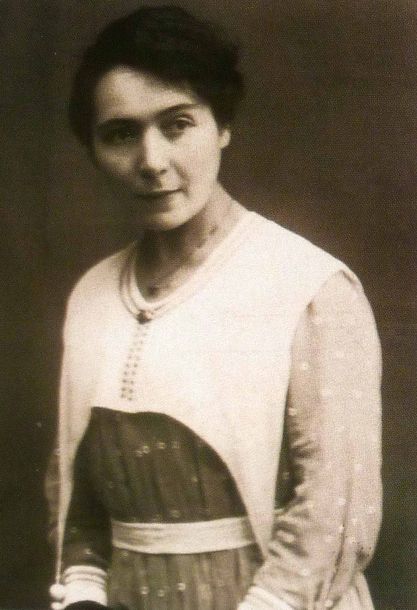
Anneliese and Hans Geschmay in Fascist Italy
The lives of Hans and Anneliese Geschmay, née Hecht, were in danger even after they escaped from Germany. In 1936 they had moved with their children Hannelore (born 1931) and Dorothea (born 1935) from Goeppingen to Mussolini’s Italy. Before the family’s move, Hans Geschmay had already spent considerable time in Italy in order to start a new factory there, which was meant to provide a living for him and his family. The company was named Feltrificio Veneto. This factory and their close-by rental house were located near the Venetian city of Marghera. While there, little Anna Laura (Hannelore) Geschmay learned first-hand about Anti-Semitism which was becoming more pronounced after the alliance between Italy and Nazi Germany. She could no longer attend the public school but could at least take the final exams. However, in 1938, Hans Geschmay already was able to favourably clear up the residency status for his family in Italy. With the help of a respected Fascist attorney it was confirmed that his factory in Marghera was crucial to the country’s economy and that he was the only qualified person to be its director.
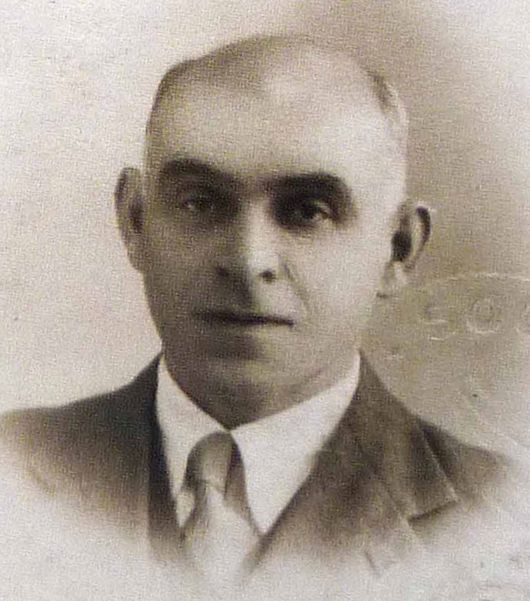
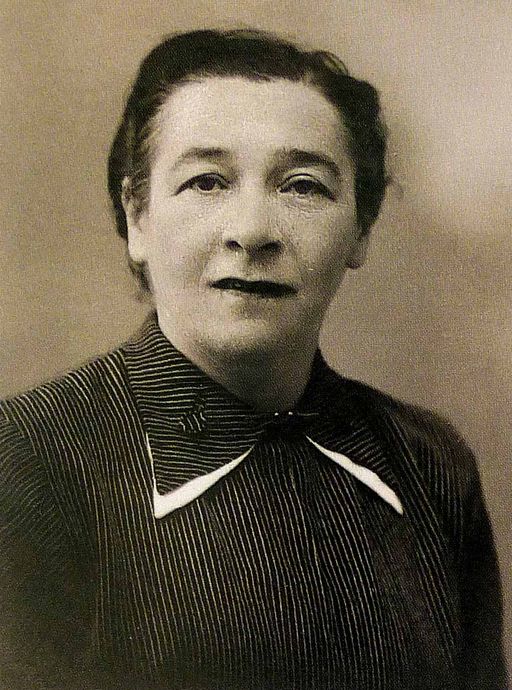
A happy event occurred in 1937 when their third daughter Silvia was born. However, the family’s lives were endangered after September 8, 1943, when Italy dissolved its alliance with Nazi Germany. The family had to stay concealed from the German occupation troops and lived in fear and hiding for 20 months. They moved from one safe house to another, which had been arranged for them by the Antifascists. For some time the three daughters found refuge in an orphanage where their parents could only see them once a week. The family could not return to their destroyed house in Marghera until the end of April 1945, but their factory had been nearly completely demolished by bombs. In 1945 Giovanni (Hans) Geschmay had to try to get back the company assets of his Italian factory which had been taken over by Nazi ‘commissar’ Robert Klingeisen.
David and Pauline Alone in Nazi Germany
Records prove that David Geschmay already was attacked in June 1934. On the evening of the 7th June a mob, “Hitlerjugend und Jungvolk”, crowded together in front of his house. He was forced to come outside; there he was insulted as being a “Jugendfeind”, an enemy of the youth (“Göppingen unterm Hakenkreuz”, p. 188f).
Pauline remained courageous and involved. In 1935 she collected signatures against the so-called ‘Nuremberg Laws’, by which Jewish citizens were declared inferior and lost many of their civil rights. Through this brave action she became the hero of the Jewish community in Goeppingen. During the same year she visited her son and family in Italy with the hope to find a cure for her arthritis. David Geschmay’s attitude towards the Nazi regime was typical for many of the elder Jewish people living in Germany. His son reflected on this in a letter to Georg Weber: “My father never wanted to emigrate because he never felt different from any other German.” With typical ‘German honesty’ he defended the company, his family’s property which by all rights should have belonged to his son Hans, living in Italy. Because David was the one they could get their hands on, the Nazis put him under tremendous pressure to sell.
The Forced Sale of the Company
Anna Laura Geschmay Mevorach writes the following:
“As it was the case for so many Jewish people, the authorities also tried to force my grandfather to sell the factory. However, he continued to refuse to sign a certificate of transfer and stated: “Whether I sign or not, you are going to take it away even though by all rights it belongs to my son.” The factory was then taken over by someone named Haefele, whom my grandfather strongly criticized because of his shady behaviour. He already could tell that Haefele was not qualified to run the company. Finally, my grandfather refused again to sign the document that was placed before him. At the age of 80, he was pushed down the courthouse steps.”
Nuertingen historian Steffen Seischab’s research shows that the non-Jewish competitors of the Geschmay Wuerttemberg Felt Cloth Company made a determined effort to purchase it. In 1905 they had formed a cartel-like organization called the ’United German Felt Cloth Manufacturers’ (VDF). The Geschmay company did not belong to this consortium. Their goal was to close the factory down because this would cut down the over-production of this industrial sector. Because David Geschmay refused persistently to sell to the VDF, they increased their pressure on him by trying to influence the local authorities to cut back his supply of raw materials. Raw wool materials were in scarce supply and strictly rationed during the Third Reich. If the VDF had been successful in their attempt the Geschmays would have had to stop production at their Goeppingen factory and sell it quickly in order to save any the firm’s assets. However, this strategy by the influential VDF did not succeed because the State Ministry for Economics wanted to stop the already powerful cartel to become even stronger and therefore favoured another buyer, worsted-yarn weaving company Haefele in Ebersbach on the Fils which was not a member of the VDF. Mr. Geschmay eventually sold to Haefele. This forced sale took place on December 30, 1939.
How the ‘Home’ Became a ‘Judenhaus’
Soon other Jewish families were forcibly moved into the house of the Geschmays in the Metzgerstrasse 16. In Goeppingen it became a so-called `Jewish house´. This is well documented in a photo of the house taken at the end of 1940 by Berthold Auerbacher who had been forced to live there. It shows his daughter Inge surrounded by the few Jewish children still living in Goeppingen at that time. Like almost all Jewish citizens of Goeppingen, the Geschmay couple became very isolated and suffered from the limited allocation of food supplies. However, it was fortunate that the grocery store of the Gassenmayer family was in the house right across the street. They were faithful neighbours and supplied them secretly with food. The Heer family, owners of the Hotel Post near the railroad station at that time, also stood loyally by their Jewish guests and made it possible for the Geschmays to dine secretly and get together with friends in a back room.
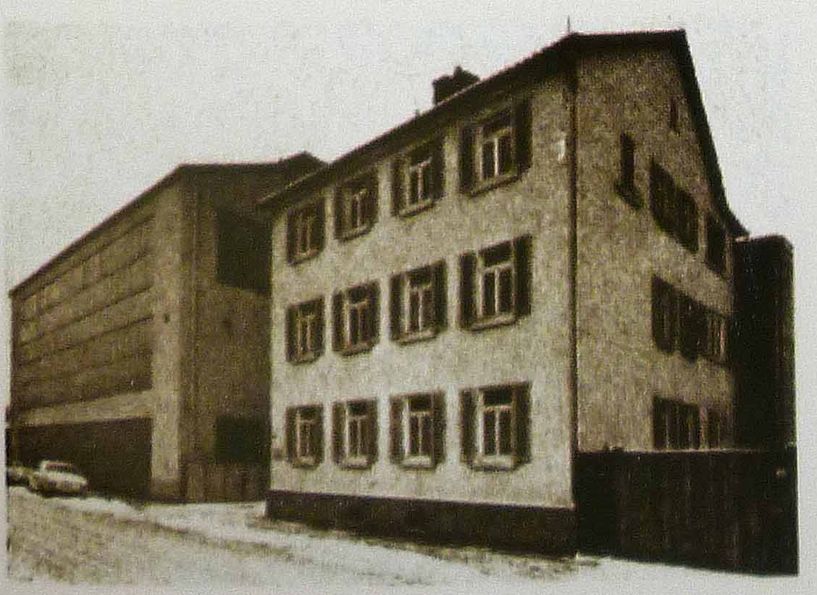
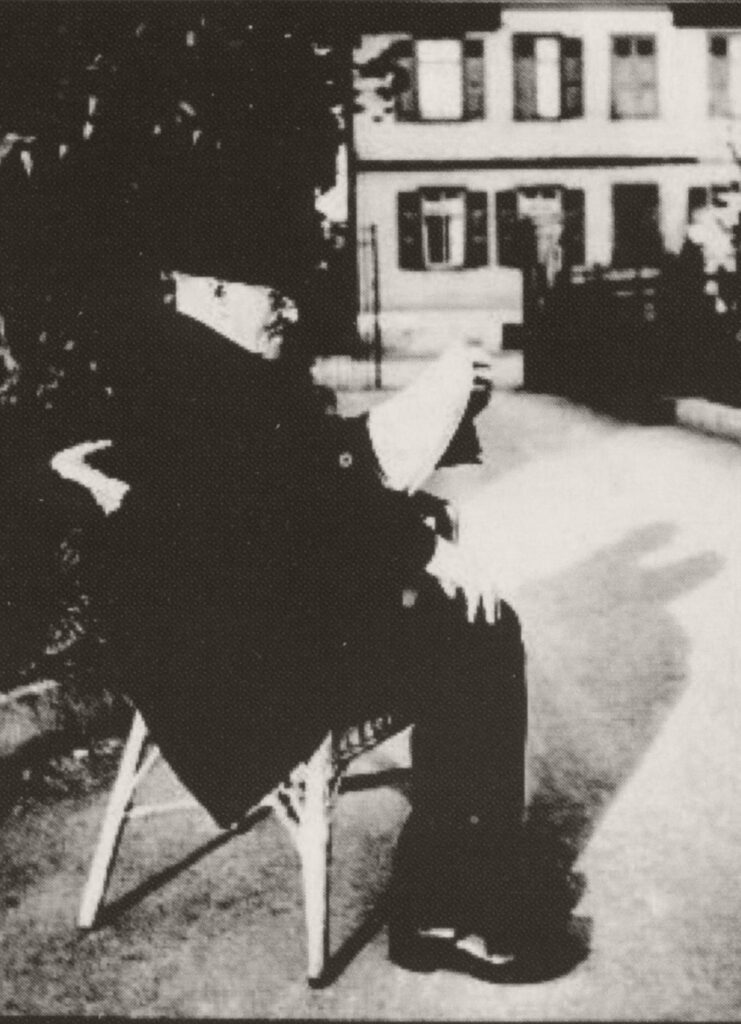
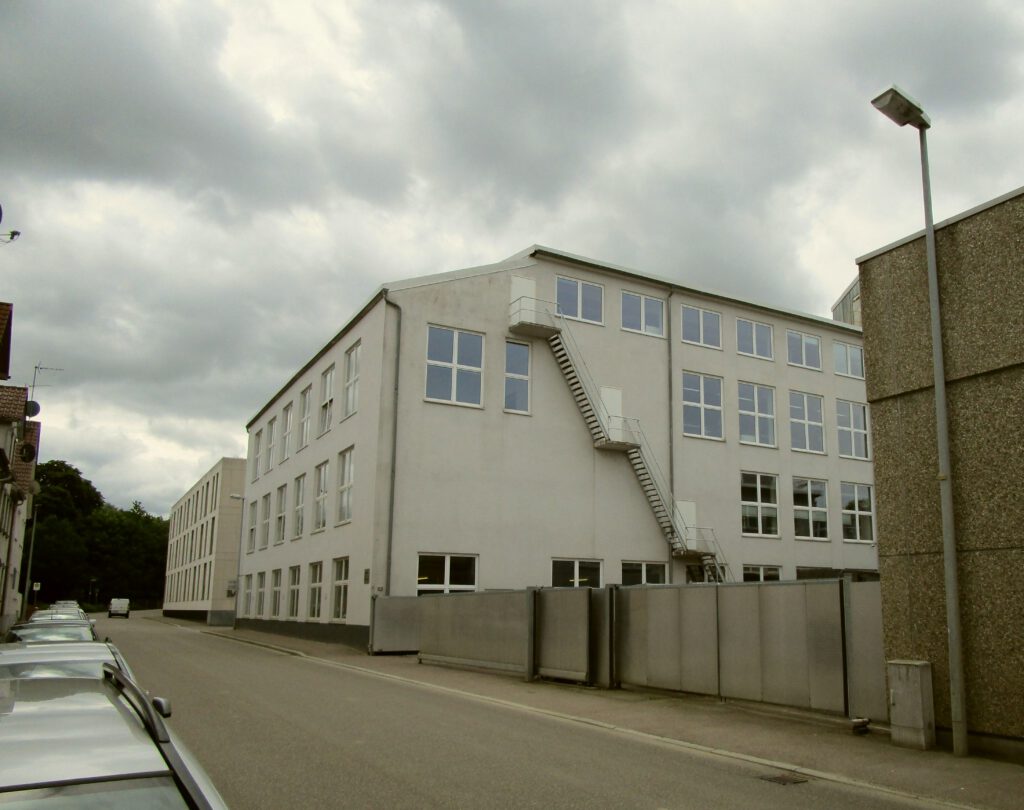
Expelled and Murdered
On August 22, 1942, David and Pauline Geschmay were expelled from their hometown. 77-year-old Pauline, suffering terribly from arthritis, had to be taken by handcart to the gathering place in the Schiller School. Gerhard Kieffer, a contemporary witness who had a commercial apprenticeship under the new ownership of the firm, remembers:
“It is correct that Mrs. Geschmay Senior was picked up in a handcart. Along the way passers-by stopped and complained loudly how badly these people were being treated.”
On the next day, the Geschmays were taken to the Stuttgart Killesberg transit camp, where they were held until further deportation. Together with 1076 other Jewish children, women and men, Pauline and David Geschmay were transported by train from Stuttgart Killesberg to Theresienstadt concentration camp. A couple of days after arrival there, on September 4, 1942, David died miserably. On September 26, 1942, his wife Pauline was transported to the extermination camp Treblinka and later murdered there. Her exact date of death is not even known.
The parents of Anneliese Geschmay, née Hecht, were also close family members who died a violent death. Ludwig and Rosa Hecht, née Thalmessinger, who lived in Ulm, were deported to Theresienstadt and both died there under murderous conditions. In May 2015 Stumbling Stones were laid for the Hecht couple in Ulm. David’s older brother Adolf Geschmay, who lived in the village of Edersgruen and was deported to the Theresienstadt concentration camp, was also murdered by the German Nazis. Pauline Geschmay’s next older sister Fanny Gruenebaum, née Schlossberger, met with a similar fate when she was deported from her place of residence in Frankfurt / Main to Theresienstadt in August 1942, where she died in misery on September 9, 1942.
After the war, Giovanni (Hans) Geschmay and his daughter Anna Laura decided to rebuild the factory in Goeppingen that had been returned to them. The memory of David Geschmay’s uncompromising courage may have been one of the reasons that encouraged them in this decision. The firm remained in the family’s possession until 2000. The new owner, the Albany-Group, still conducted business under the name of the original founders at their new place of business in Goeppingen-Faurndau up to the year of 2015, when it was finally closed down.
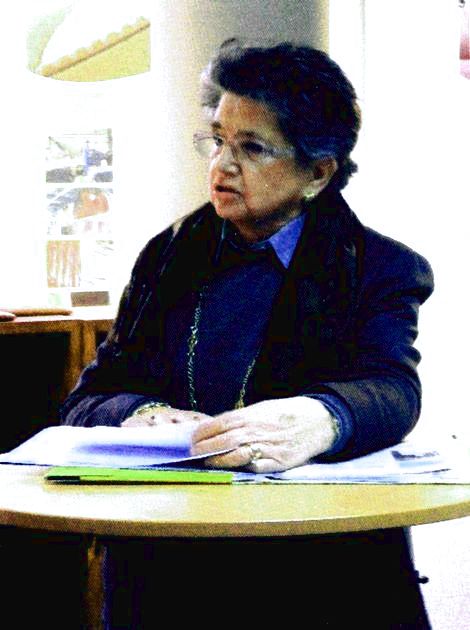
In February 2008, Stumbling Stones for David and Pauline Geschmay were placed in front of their former residence at Metzgerstrasse 16. At the laying of the stones, the following family members participated in the ceremony: Their granddaughters, Dr. Anna Laura Geschmay Mevorach (✝) with her son Andrea, Mrs. Dorothea Ravà, née Geschmay, with her son Tobia and Silvia Levi, née Geschmay, with her husband Prof. Raffaelo Levi.
Much of the information about the fate of the Geschmay family was obtained from the book entitled ‘From the Swabian Alb to the Venetian Lagoon,’ which was written by Dr. Geschmay Mevorach and which has been available in German translation since 2011. It may be obtained from the Goeppingen City Archives.
(28.10.2024 kmr/ww)





















So beschämend. Wie kann ich Mensch sein, wenn unsere Vorfahren solches Unrecht begingen?